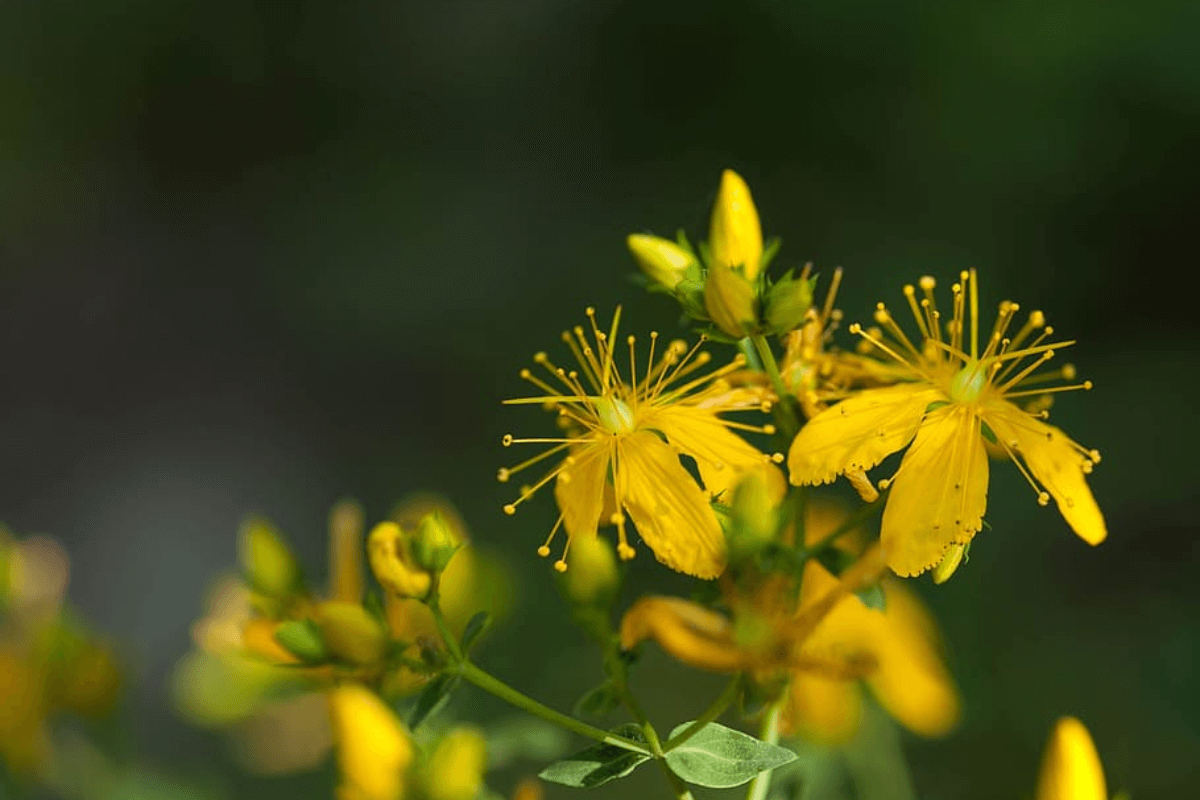Saint John’s Wort, scientifically known as Hypericum perforatum, is a flowering plant with a long history of use as a natural remedy for various ailments, especially depression. With its vibrant yellow flowers and rich tradition in herbal medicine, this potent herb has become well-known for its potential to help alleviate symptoms of mild to moderate depression.
Research suggests that Saint John’s Wort may work by influencing neurotransmitters in the brain, such as serotonin, dopamine, and norepinephrine, which play a crucial role in mood regulation. Many people have turned to this herbal remedy as a natural alternative to conventional antidepressants, seeking relief from the emotional weight of depression with fewer side effects.
In this article, we will delve into the benefits of Saint John’s Wort, exploring its historical uses, scientific backing, and practical applications. Discover how this remarkable herb can be a valuable ally in the journey toward emotional well-being and mental health.
Hypericum Perforatum
Saint John’s Wort was used by the ancient Greeks and Romans to ward against evil spirits. Sprigs of the plant were placed upon the statues of their gods. During medieval times, the Europeans used the plant to treat all forms of madness and thought the plant to have many magical properties since it blooms near the Summer Solstice.
Here is a great legend regarding how it may have gotten its name. It was used during the Crusades about 1048 AD as a battlefield medication by Saint John of Jerusalem. He used the herb to heal the terrible battle wounds suffered by the soldiers. The herb worked so well as a balm for cleaning and healing wounds that were dirty, putrid, and even septic that legends were built around its power and the man who used it.
Nature’s Way Premium St. John’s Wort Herb – Get Yours Here.

Paracelsus, a medical authority of the Renaissance wrote of using Saint John’s Wort to treat wounds. He was also the first to mention using it for psychotic symptoms, which he called “phantasmata”. During our Civil War, soldiers reported in their journals collecting and using Saint John’s Wort to treat battle wounds. Many soldiers recorded the use of a wine made with Saint John’s Wort that would steady the nerves.
Perhaps the most important writing on the psychological use of Saint John’s Wort came in 1630AD when Angelo Sala stated that Saint John’s Wort had an excellent reputation for treating illnesses of the imagination, melancholia, anxiety, and disturbances of understanding. He wrote, “Saint John’s Wort cures these disorders as quick as lightning.”
St John’s Wort Capsules – Get Yours Here.
The compound Hypericin was isolated from Saint John’s Wort in 1942 and has been used as an anti-depressant for emotionally disturbed people. This tranquilizing quality from small quantities of hypericin increases blood flow to stressed tissue. There is a reduced capillary fragility and enhanced uterine tone due to the increased hypotensive blood flow.
Saint John’s Wort relieves pain, has a sedative effect, and is used for the treatment of neuralgia, anxiety, and nervous tension. It can be applied as liniment or poultice to relieve pain, for treatment over the spine for relief of nervous diseases that are related to the spine, sciatica, neuralgia, and rheumatic pains, and as a lotion for pain relief, and eases burses.
Saint John’s Wort is also known to be useful.

For pulmonary complaints (the release of phlegm in the lungs), bladder trouble, suppression of urine, dysentery, worms, and nervous depression. The herb is an excellent treatment for chronic uterine problems and will correct irregular and painful menstruation. The herb also contains an alkaloid that is a heart and artery stimulant.
If you are using an anti-depressant and you would prefer to use Saint John’s Wort, check for contraindications (things you should not take with your medication), also consult with your physician. There is a report of a side effect from taking Saint John’s Wort. In Australia, where Saint John’s Wort is a rampant weed, it has killed pale-pigmented sheep and goats by inducing photosensitivity. If an animal or a light-skinned human eats the plant, exposure to direct sun may cause dermatitis and inflammation of mucus membranes. Though Pharmacognosist Varro Tyler, Ph.D., points out in his book The Honest Herbal that problems rarely result from normal doses.
Linking Saint John’s Wort to TheHerbProf.com
Saint John’s Wort is a vibrant herb with a rich history of medicinal use, and at TheHerbProf.com, we’re all about celebrating these herbal wonders! Here’s how our website and this subject harmonize:
- Saint John’s Journey: We provide comprehensive information about Saint John’s Wort, its medicinal properties, and its uses in herbal medicine.
- Herbal Highlights: Our site offers insights into how Saint John’s Wort can be incorporated into your herbal regimen.
- Safety First: We guide you on how to use Saint John’s Wort safely and effectively.
- Health and Wellness: Our focus is on promoting overall health and wellness, and Saint John’s Wort plays a crucial role in this.
- Community Connection: Connect with others who are interested in Saint John’s Wort and share your experiences.
So, whether you’re a Saint John’s Wort enthusiast or just starting your herbal journey, TheHerbProf.com is your trusted guide. Remember, stay curious and stay healthy!
References:
Little Herb Encyclopedia, by Jack Ritchason; N.D., Woodland Publishing Incorporated, 1995
The Ultimate Healing System, Course Manual, Copyright 1985, Don Lepore
Planetary Herbology, Michael Tierra, C.A., N.D., Lotus Press, 1988
Handbook of Medicinal Herbs, by James A. Duke, Pub. CRP Second Edition 2007
The Complete Medicinal Herbal, by Penelope Ody, Published by Dorling Kindersley
